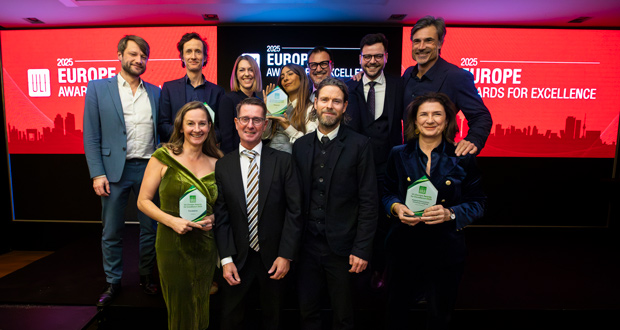
ULI Awards for Excellence 2025 winners
Four outstanding built environment projects have been named the overall winners of the 2025 Urban Land Institute (ULI) Europe Awards for Excellence from this year’s 10 finalists.
The diverse winning projects include a social housing project in Milan situated on an abandoned office development site, a new secondary school in Brussels developed in a former brewery, a new flexible life sciences hub in Stockholm, and an acute healthcare facility in Birmingham which is intended as a catalyst for community regeneration.
Celebrating the highest standards of achievement in land use practice across the whole development process, projects can be submitted in the annual awards from the private, public, and non-profit sectors, and must be in an EMEA country, financially viable and significantly implemented. All entries are evaluated by an expert jury across a range of criteria, including planning, architecture and design, construction, financial viability, management, sustainability and resiliency, and community impact.
All four winning projects were announced at a celebratory ULI Europe Awards for Excellence dinner held during the C Change Summit in Paris, and include:
5Square, Milan, Italy (Developer: Redo SGR; Owner: Fondo Immobiliare di Lombardia – Comparto Uno; Architect: Barreca & La Varra and Fondazione Housing Sociale). A social housing project of circa 10,000 sqm situated on a previously unfinished and abandoned commercial complex, repurposing five structures with the aim of creating a vibrant social housing community supported by shared amenities. The jury noted that 5Square constitutes a residential community reborn from abandonment into a circular, affordable, inclusive community. (Category: Residential).
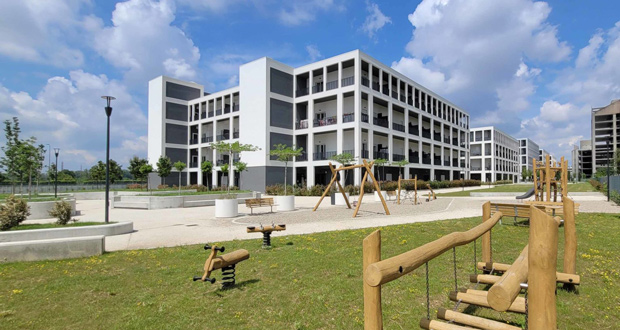
Egied van Broeckhovenschool, Molenbeek-Saint-Jean, Belgium (Developer: Vzw Ignatius Scholen in Beweging (school group) and PREO (project director); Architects: B2Ai architects, B2Ai interior design, and Stefaan Thiers (landscaping); A new secondary school for 860 pupils created in the former Vandenheuvel Brewery bottling plant, which has been converted and refurbished with high social, urban, educational and sustainable ambitions. The project aims to retain its architectural heritage and integrate into the urban fabric of a densely populated, socially deprived area. The jury appreciated the school for transforming a site in a neglected neighbourhood into a place of pride and possibility. (Category: Education).
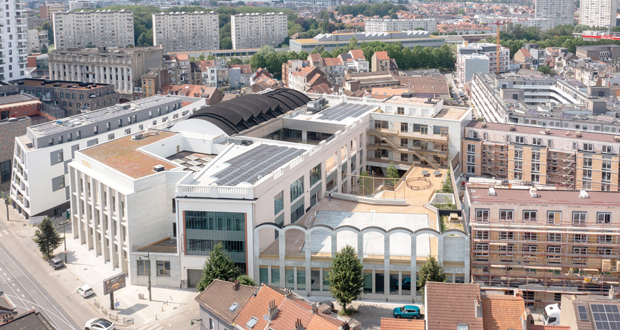
Forskaren, Stockholm, Sweden (Developer: Vectura; Architect: 3XN); A new 24,000 sqm development located in the Hagastaden health and life sciences district. The circular building is intended as a hub containing flexible work environments including offices, co-working and laboratories, two public restaurants and exhibition space. It is designed as a vertical life sciences village that aims to encourage connection and collaboration between industry, research, and academia, situated in an open environment. The jury praised how the round building interacts with the public realm, sustaining community engagement by inviting people in to explore, with many areas open to the public including the atrium where science is openly on display, plus ground floor restaurants and an exhibition space. (Category: Other/Labs).
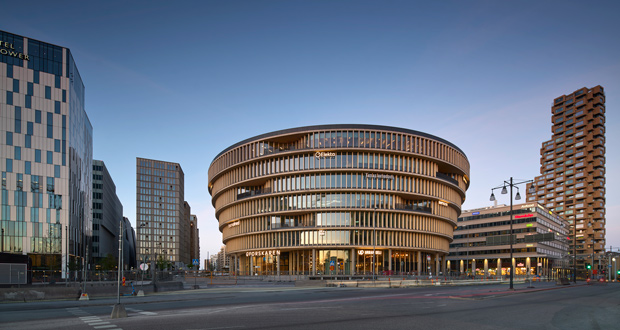
Midland Metropolitan University Hospital, Birmingham, UK (Owners: Sandwell and West Birmingham Hospitals NHS Trust; Architects: HKS, Cagni Williams, Sonnemann Toon); A purpose built acute health care facility aiming to deliver a new standard for clinical healthcare design and act as a catalyst for community regeneration in an area of high deprivation. Comprising emergency, maternity, children’s and adult acute services, the design is intended to maximise useable floor space and adapt to changes in health care and community needs. The jury highlighted that it is a hospital that redefines what it means to heal, where architecture itself promotes recovery. (Category: Other/Healthcare).
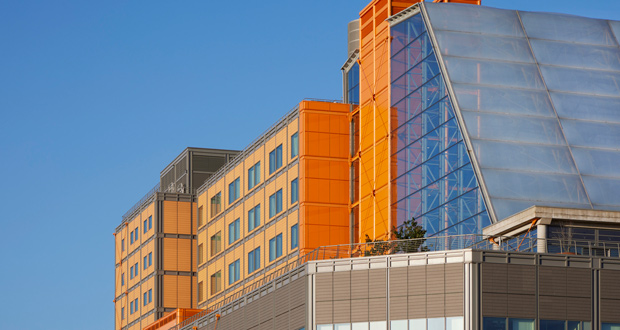
Simone Santi, Director & Founder, VeO (Italy) and Chair of the 2025 ULI Europe Awards for Excellence Jury said: “We’ve had a record number of incredibly high standard entries in the awards this year, and it has been extremely difficult for the jury to select our four overall winners from among this year’s inspiring shortlist of built environment project. Our winners all certainly push the envelope, featuring groundbreaking healthcare, laboratory, education and residential projects. All demonstrate bold thinking in what is possible to achieve in urban development, and all of them are worthy of our celebration.”
Workspace management: One-size-fits-all booking systems don’t work anymore
The way we work has changed – yet, many organisations are still relying on rigid, one-size-fits-all tools to manage desks and meeting rooms, according to a new study from workplace management solutions provider, Matrix Booking.
Spreadsheets, calendars, and generic booking software may have worked once, but they’re struggling to keep pace with today’s flexible, hybrid workforce. The result? Wasted time, frustrated employees, and expensive underutilised space.
Matrix Booking’s new study, ‘One-size-fits-all booking systems don’t work for today’s workforce’, explores why current systems are falling short – and how organisations can reimagine workspace management to boost efficiency, employee experience, and cost savings.
To download your FREE copy click here.









